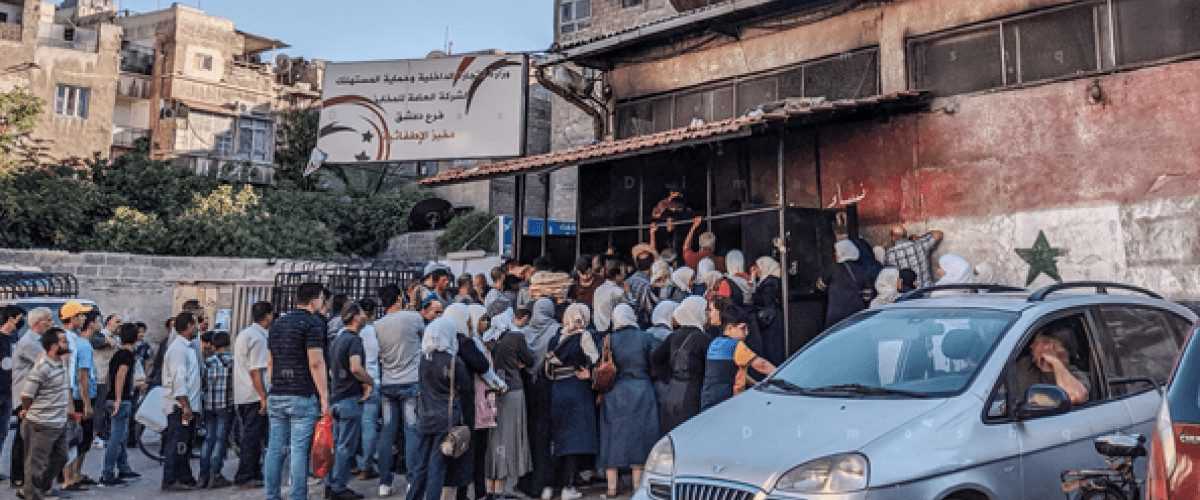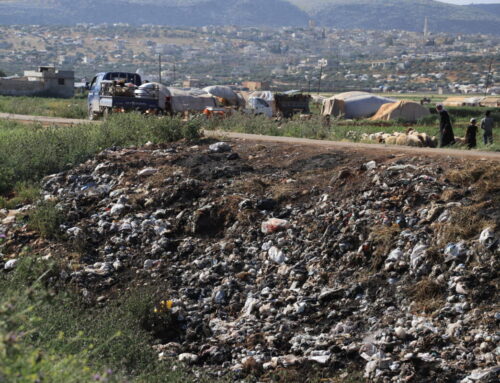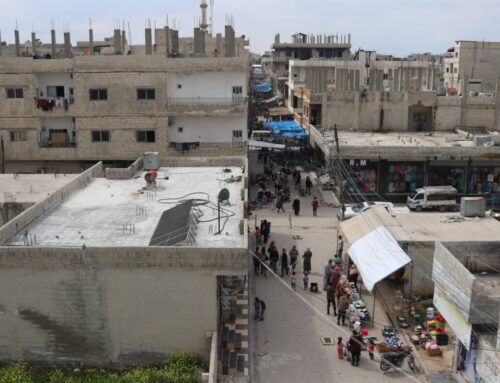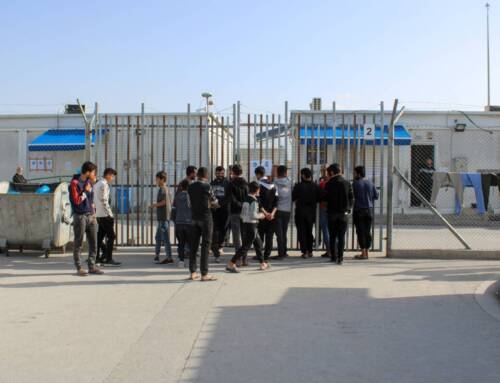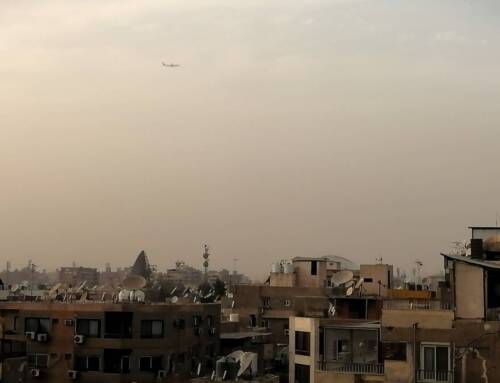From bombing bakeries to building them: Bread instrumentalized by the Assad regime
Those responsible for the Halfaya bakery’s destruction are also those who claim fame for its reconstruction: the Assad regime and its allies.
8 December 2020
Syrians wait outside a bakery in Damascus to get bread, 22/7/2020 (Lens young Dimashqi)
AMMAN — The Assad regime celebrated the reopening of the main bakery in Halfaya in the countryside of Hama province on December 5, eight years after its destruction. The bakery was destroyed by a regime airstrike on December 23, 2012, resulting in the deaths of at least 60 civilians who were queuing for bread.
Ironically, those responsible for the bakery’s destruction are also those who claim fame for its reconstruction: the Assad regime and its allies. The Halfaya bakery’s story echoes many others across Syria and illustrates how bread, among other basic necessities, has become a strategic tool in the conflict.
A deliberate strategy of war
Halfaya is just one among dozens of bakeries targeted throughout the Syrian war. Citing a handful of instances is enough to hint at the extent to which the regime and its Russian ally have targeted them.
In 2015, Russian airstrikes destroyed a large bakery run by the Turkish aid agency IHH in northwest Syria. According to the Union of Non-Governmental Organizations of the Islamic World (UNIW), the bakery served around 50,000 people.
The same year, Russian planes destroyed the largest bread bakery in the western countryside of Aleppo, affecting 120,000 people’s access to bread.
Similar attacks on bakeries across opposition-held areas continued in the subsequent years. In January 2016, another Russian strike damaged a British-funded bakery in Hazano, Idlib province, hours before its opening. The bakery would have served 18,000 people. In April 2017, the bakery in Kafr Zeita in Hama province was shelled by Russian jets, three years after a chemical attack on the city by the regime forces. It was the last operating bakery in northern Hama province. And according to Amnesty International, two more bakeries were destroyed in Idlib in February 2019, in the town of Khan Sheikhoun.
Strikes against bakeries did not cease until the precarious ceasefire agreement over the opposition-held enclave of Idlib, negotiated by Russia and Turkey in March 2020. In January 2020, Russian bombs were still targeting bakeries in Idlib, with ten civilians killed in the city of Ariha in one such bombing.
“The attacks are recklessly indiscriminate and the pattern and number of attacks suggest that government forces have been targeting civilians,” stated Human Rights Watch in a 2012 report, stressing that “reckless, indiscriminate attacks and deliberately targeting civilians are war crimes.” Like hospitals, bakery bombings are part of a systematic strategy to “punish” the population of opposition-held areas by denying them access to vital goods and services.
At the center of propaganda efforts
While Russian planes wreaked havoc on bakeries in opposition-held areas, attention turned to their reconstruction in regime-controlled territories.
On November 23, the pro-regime social media account “Syrian Eye” tweeted about the rehabilitation of the Kafr Hamra bakery in the countryside of Aleppo “from the damage it suffered as a result of terrorism.” The same month, tweets from “TheSyrianTweet”account celebrated the reopening of al-Adawi bakery in Damascus and al-Zahraa bakery in Homs.
Back in April 2017, only a few days after Russian jets destroyed the Kafr Zeita bakery in Hama, a tweet promoted the upcoming Russia-funded reconstruction of a bakery located in an area recently seized by the regime: “Russia have [sic] been regularly helping Syrian people with humanitarian aid, and now Russia is helping Syrians restore Aleppo bakery”.
Notwithstanding these celebratory tweets, Russia’s contribution to reconstruction has so far been insignificant. While it hopes to seize a large share of reconstruction contracts, Russia was unwilling or unable to devote meaningful financial aid to Syria until this November – when Russian news agencies announced the allocation of one billion dollars to Syrian reconstruction. This falls far short of the $250 billion needed.
Bakery-building stories are geared towards bolstering the regime’s image in Syria and Russia’s image abroad. They tie into other propaganda discourses, such as the role Russia and Assad purport to play as protectors of Syrian minorities. Some publicized bakery reconstruction projects are explicitly linked to the “protection of Christian culture,” as done in a 2019 article on a Hungarian news platform, and may aim to appeal to nationalistic and conservative European audiences.
Rampant food insecurity
Despite propaganda efforts, Assad is unable to ensure food security for people under his control. An estimated 9.3 million Syrians are now food insecure, an increase of 1.4 million over the past six months.
On Syrian social media, under the hashtag “bakery,” pictures of long queues overwhelm and eclipse those of rebuilt bakeries. Despite the ongoing COVID-19 pandemic, crowds routinely form in front of bakeries. Regularly, the tension degenerates into conflict, as in a video showing a fight between pro-regime militias and civilians in a line for bread.
Regime-held areas face a shortage of bread, stemming from a lack of wheat. Syria’s main breadbasket is located in the northeast of the country, controlled by the Kurdish-dominated Syrian Democratic Forces (SDF). At the same time, imports are severely restricted by crippling international sanctions. The regime has resorted to coping strategies, including bartering food commodities with Iran. In 2015, it unsuccessfully attempted to barter wheat with Italy.
The price of bread has soared due to the collapse of the Syrian pound and skyrocketing inflation. In response, the government has set up a smart card system to let families access subsidized commodities, including bread sold at one-fifth of its unsubsidized price. This system, however, is ripe with flaws. The daily amount that each family can purchase is limited. Due to corruption, some subsidized goods end up on the black market, enriching profiteers. According to one local observer, technical malfunctions (which could be intentional attempts to skim subsidized products at the expense of their intended beneficiaries) caused “big chaos” last Sunday, with “thousands of families” not receiving their share.
Once bombed, now propagandized, bakeries remain a crucible of the conflict – and bread could still make or break Assad’s power.

